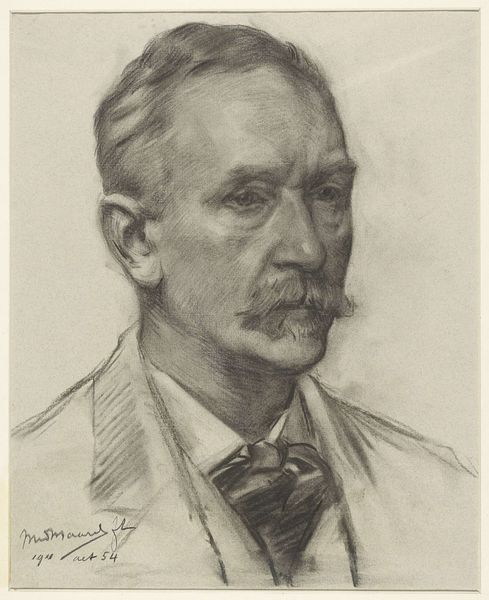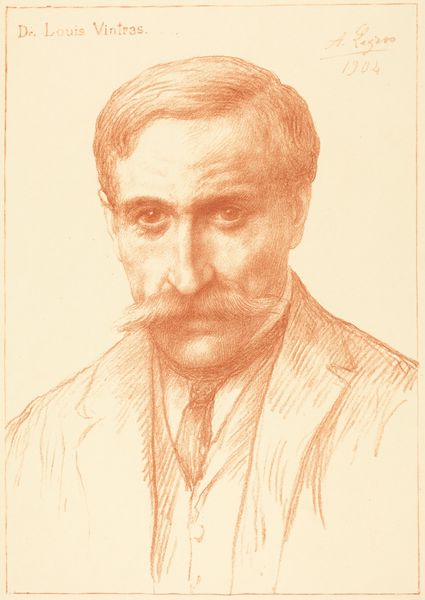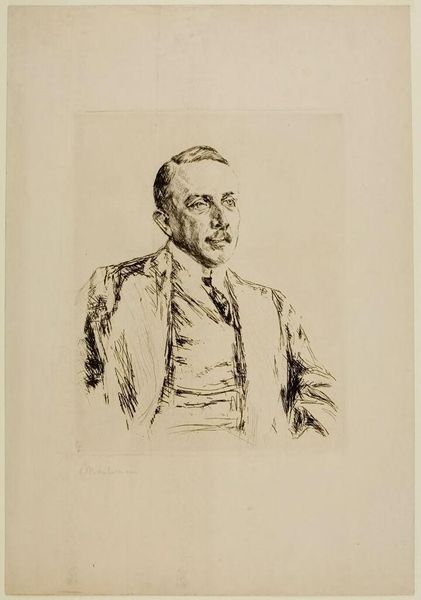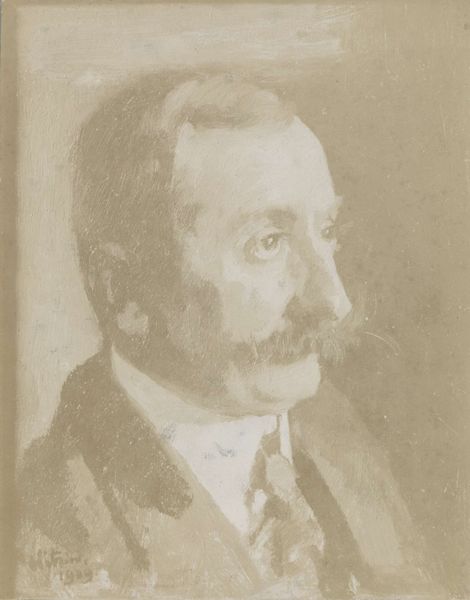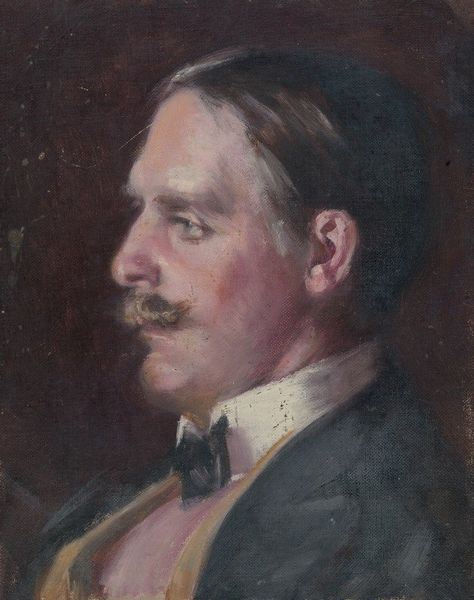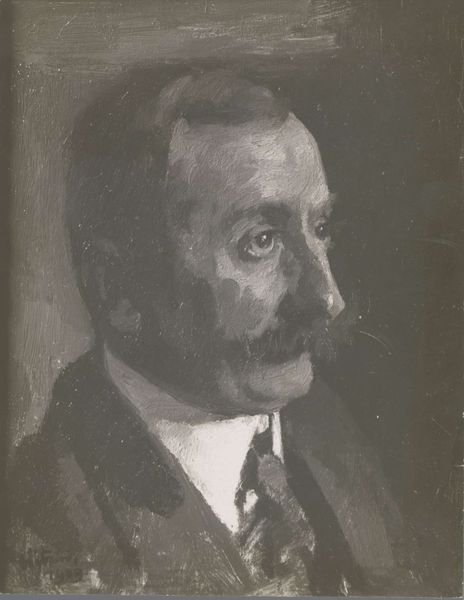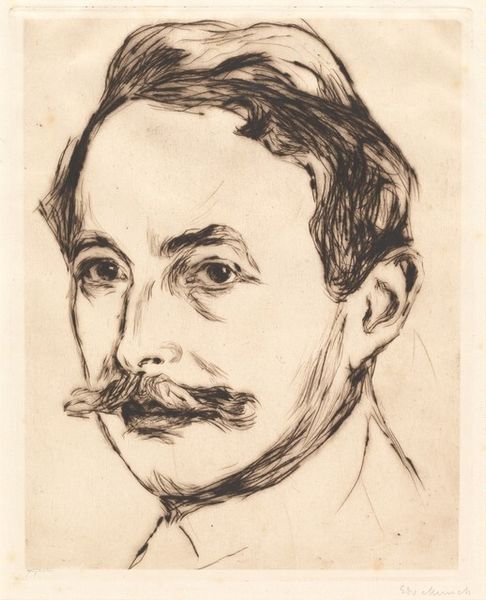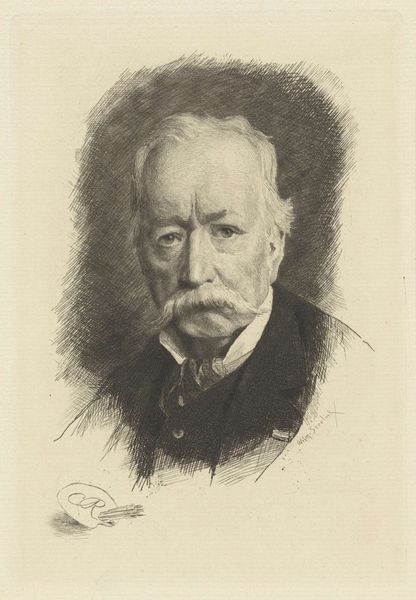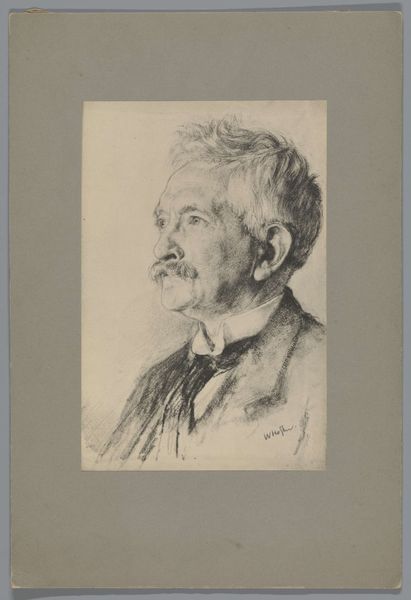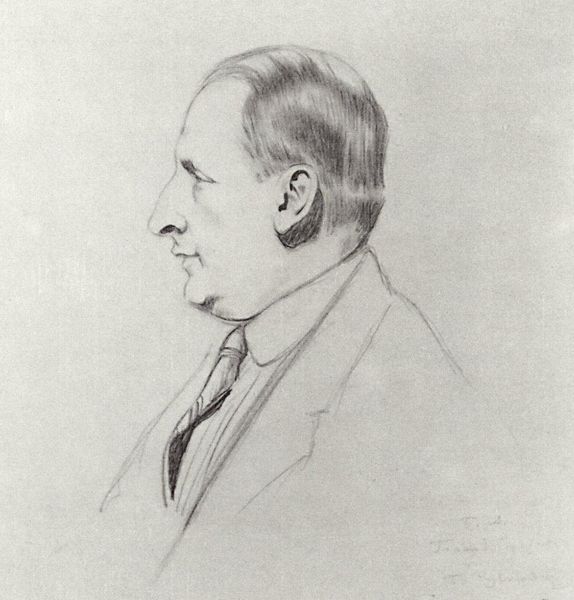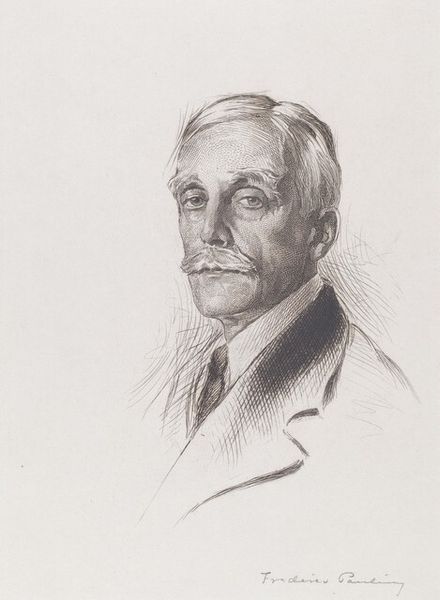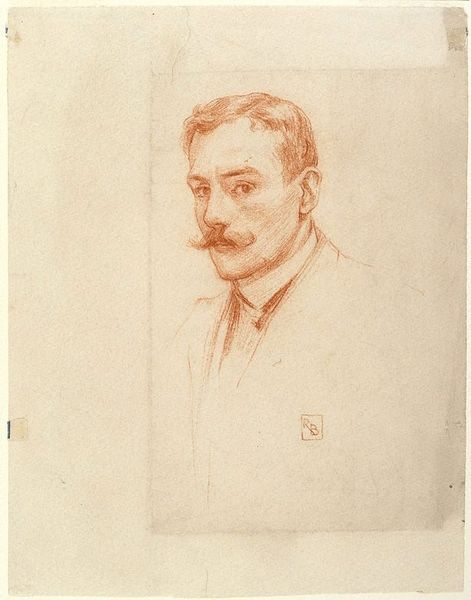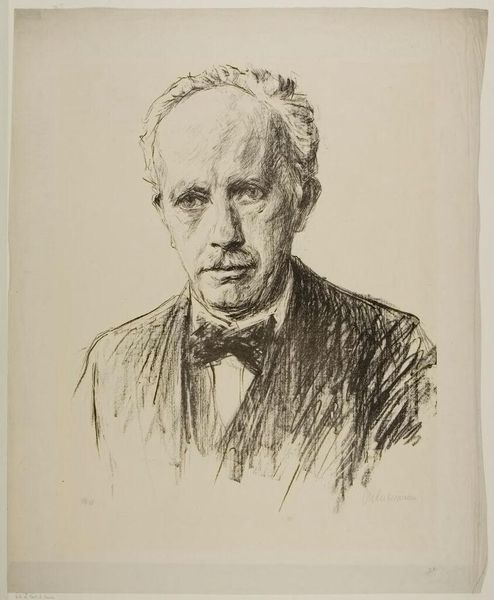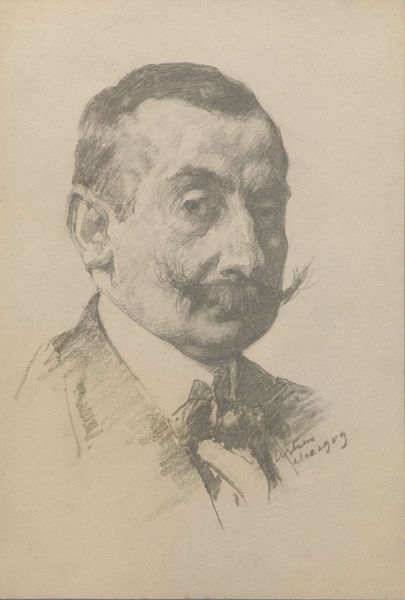
drawing, charcoal
#
portrait
#
pencil drawn
#
drawing
#
facial expression drawing
#
pencil sketch
#
charcoal drawing
#
figuration
#
portrait reference
#
pencil drawing
#
animal drawing portrait
#
portrait drawing
#
facial study
#
charcoal
#
academic-art
#
portrait art
#
modernism
Copyright: Public Domain: Artvee
Editor: Here we have John Singer Sargent’s 1914 charcoal drawing, "Portrait of Horatio P. Symonds." There's a quiet formality to it, but his gaze feels very direct. What do you see in this piece? Curator: Beyond the sitter's immediate presence, I see a work deeply embedded in its time, 1914. This portrait emerges from a complex intersection of class, gender, and medical authority in a pre-war society on the brink of massive upheaval. Consider Symonds' profession, likely a member of the established medical elite. Sargent, through his characteristic virtuosity, presents us not just with an individual, but a representative of power and privilege. What does the stark medium of charcoal suggest to you? Editor: Maybe a sense of austerity or directness? It's not as lush or romantic as paint could be. Curator: Precisely. The choice of charcoal, in a period marked by social stratification and emerging critiques of the establishment, underscores a certain pragmatism. But consider also the gaze. Is there a hint of vulnerability there? Are we invited to question the inherent authority of the sitter? Editor: I think so. There is a questioning or perhaps pensive attitude in the eyes, which softens his posture of authority. Curator: Exactly. Sargent masterfully navigates the terrain of portraiture, not simply celebrating the sitter but hinting at the underlying tensions within the social fabric itself. Think about the looming shadow of war and its impact on established societal roles and power dynamics. How does this reading shift your understanding of the work? Editor: I didn't consider how the societal upheaval could affect even the sitter. It definitely adds a layer of complexity beyond just a simple portrait of a powerful man. It makes me wonder what role Symonds would play during the war, and how Sargent saw this unfolding. Curator: Absolutely. Context enriches our understanding, revealing that artworks are never simply aesthetic objects, but rather products and reflections of complex social realities. Editor: I see that now. I'll definitely approach other works with more of that context in mind moving forward!
Comments
No comments
Be the first to comment and join the conversation on the ultimate creative platform.
